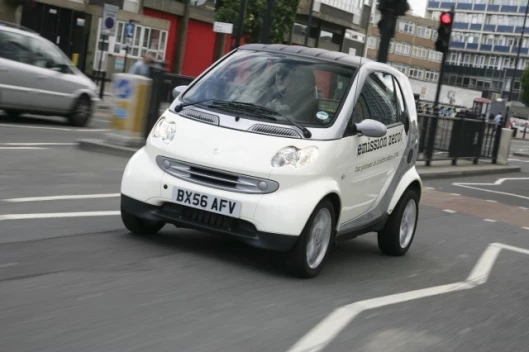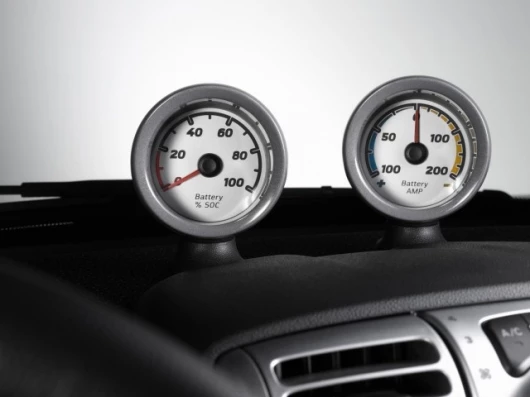Following a four-year U.K. trial of 100 electric smart fortwo electric drive cars which began late 2007, Daimler has decided to produce a limited run of the fully electric eco vehicle which will become available in 2010. The 30kW smart ed (electric drive) uses lithium-ion battery technology to power itself to an electronically limited top speed of 60 mph and is as simple to drive as a dodgem car. With no gear changes required, the diminutive smart can reach 30 mph in a respectable 6.5 seconds, making it ideal as a city car with short stints on the freeway.
The second generation smart electric drive will also be taking part in evaluation projects in Rome, Milan, Paris and several cities in the U.S.
Featuring the second generation smart electric drive’s power source will have a longer range, boast a shorter charging time and will give improved performance.
The smart electric drive is exempt from vehicle excise duty and the London congestion charge and this, underlined with incredibly low operating costs, means that companies taking part in the trial are finding it makes perfect fiscal sense.”
The smart electric drive can plug directly into a domestic power outlet for recharging, has no engine oil, oil filter, spark plugs or exhaust. In fact there are only a handful of moving parts in the driveline, resulting in significantly lower servicing and maintenance costs compared to a petrol driven smart. Apart from regular charging the high tech battery is maintenance free and depending on use can last up to 10 years.
The smart electric drive retains all the safety equipment you would find on a regular smart. So unlike electric quadric-cycles you will find ESP, ABS brakes two airbags and seat belt pre-tensioners on the ed. The ed also borrows the tried and NCAP tested Tridion safety cell from the petrol driven smart.
As a company car the smart ed brings big benefits. Electric vehicles currently get a preferential tax rate of 9% and in the case of the ed, fuel scale charges are dramatically reduced as no petrol is provided and the provision of free electricity by the employer to the employee is not treated as benefit in kind. Furthermore, employees choosing the smart ed as a company car can enjoy a notional taxable value of just UKP13,750.















